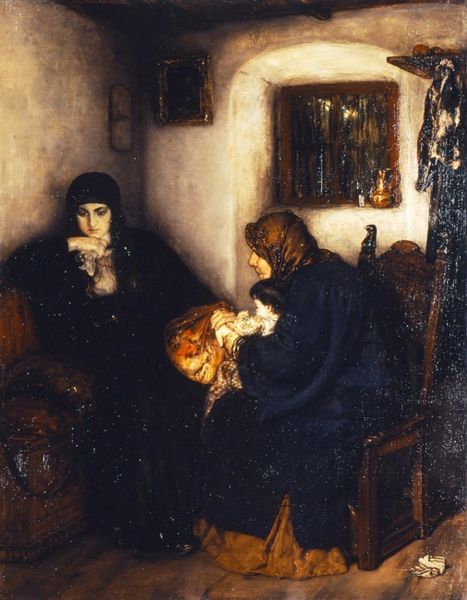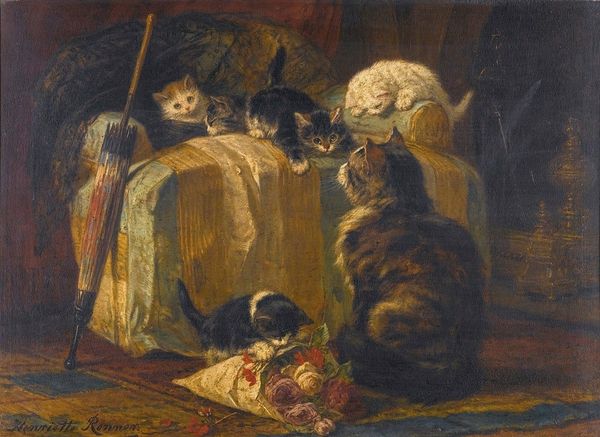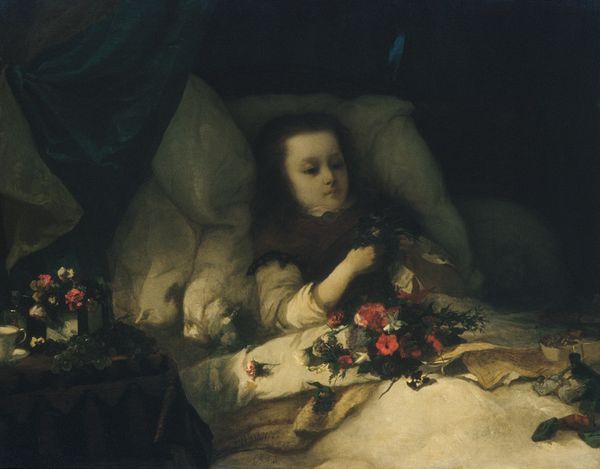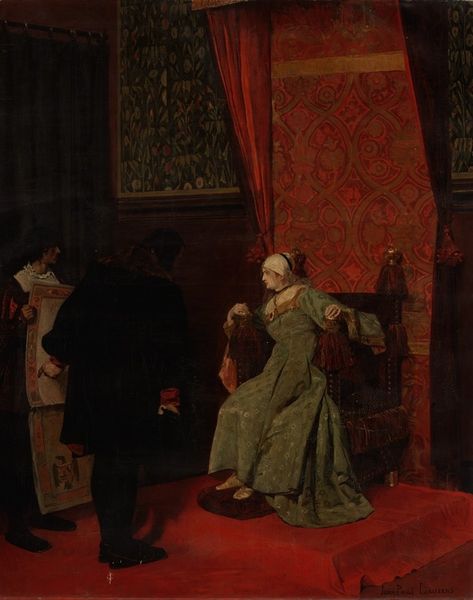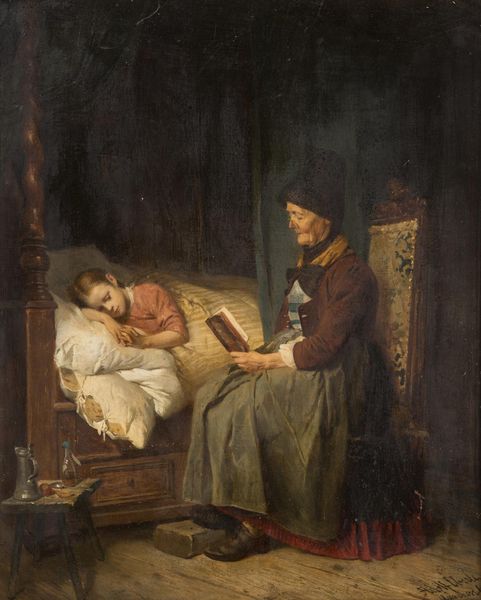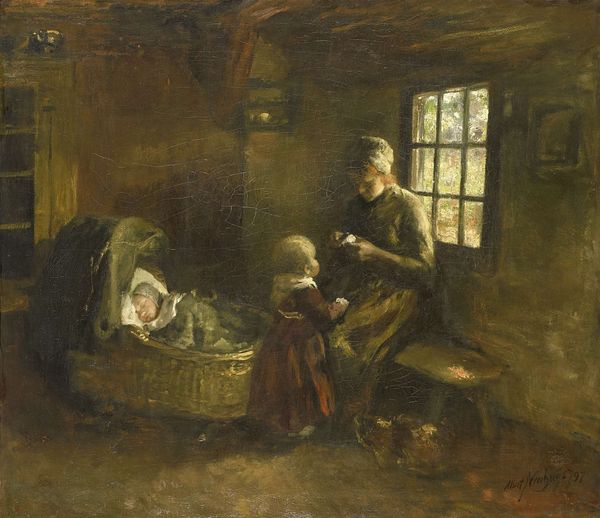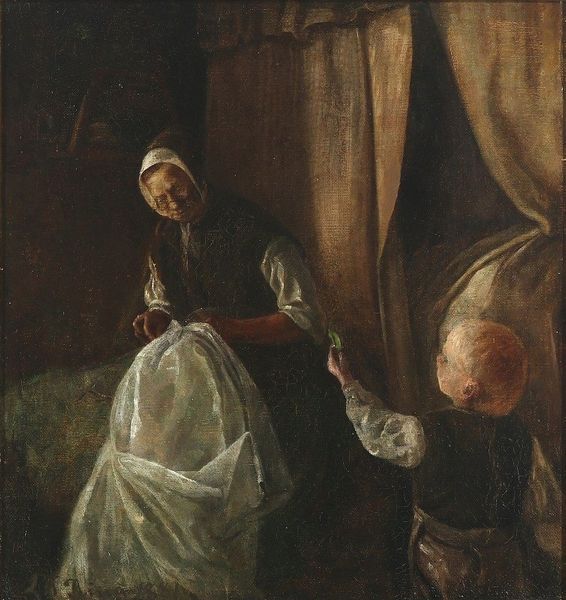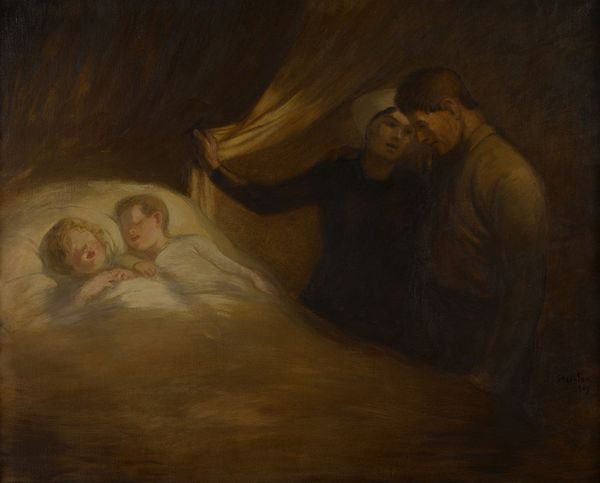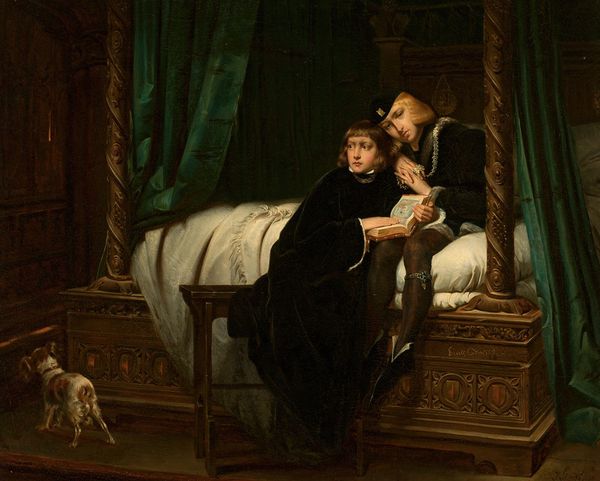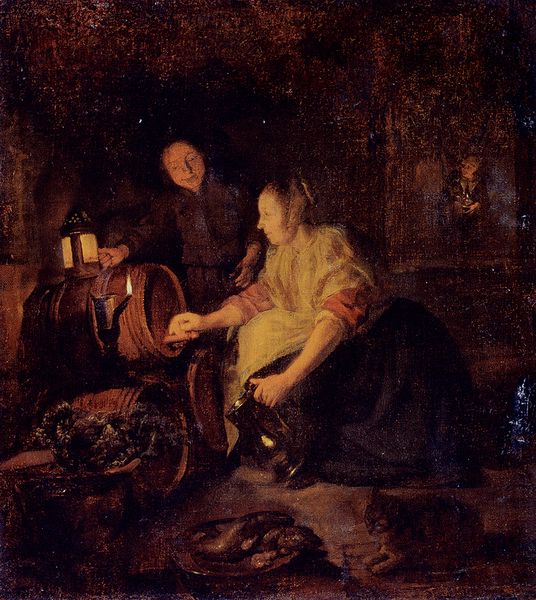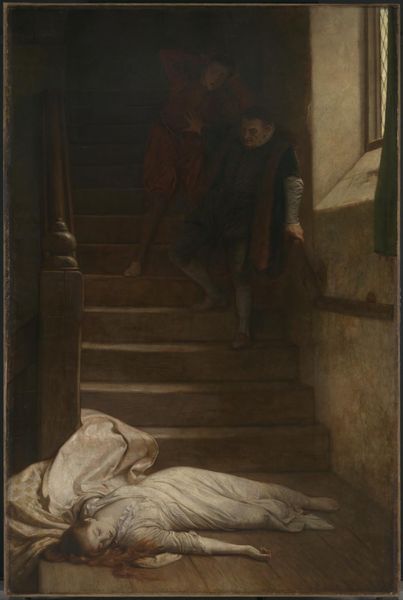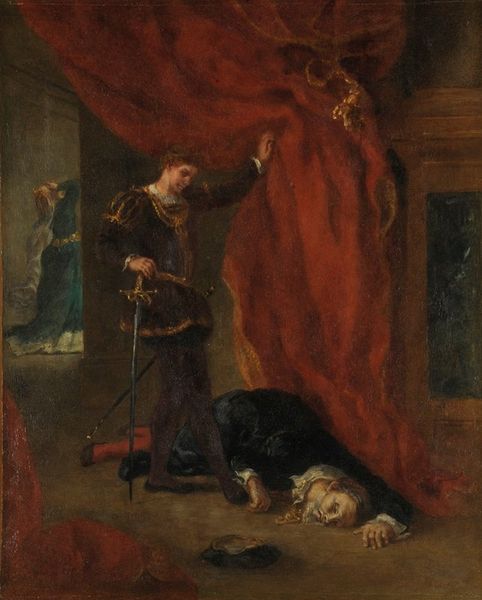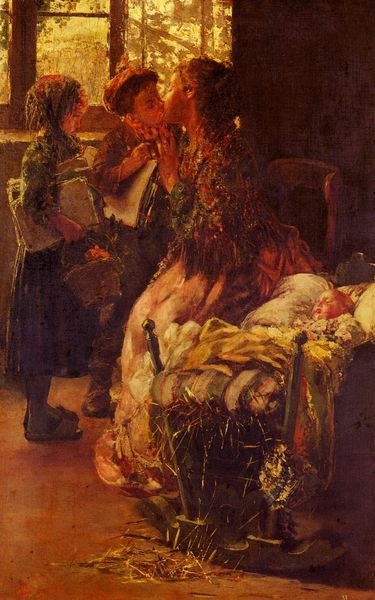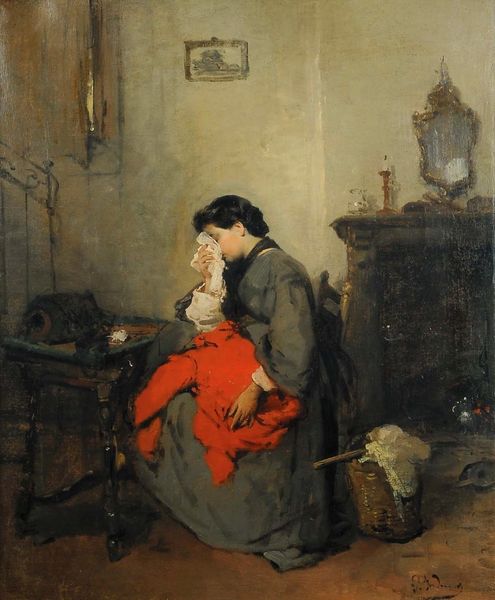
oil-paint
#
portrait
#
dutch-golden-age
#
oil-paint
#
oil painting
#
genre-painting
#
realism
Dimensions: height 42.6 cm, width 61 cm, thickness 2.6 cm, depth 12.2 cm
Copyright: Rijks Museum: Open Domain
Curator: Welcome! Here we have "Tired Out (Mother Watched)," an oil painting created by Jacob Maris in 1869. It’s currently housed right here in the Rijksmuseum. What’s your initial impression? Editor: Stark, almost haunting. There's a real sense of weary vigilance, the flickering candlelight heightening the stillness in the room, yet the title also denotes quiet affection and perhaps a resigned duty to childrearing. Curator: Maris was a prominent figure in the Hague School, a movement within Dutch realism. He often depicted scenes of everyday life, emphasizing mood and atmosphere, and the mother here is shown from an interior viewpoint with humble materials. Editor: Exactly! This isn't idealized motherhood. It captures the reality of unrelenting responsibility and quiet poverty in the 19th century. The tiny kitten near the cot feels symbolic; new life surrounded by the worn fabrics. It makes you consider issues such as gendered roles in Dutch society, or reproductive labor during that era. Curator: He skillfully manipulates light and shadow. The subdued palette creates a sense of intimacy, while simultaneously highlighting the emotional exhaustion evident in the mother's posture and the contrast between the figures. Editor: It's quite clever the way the limited light sources guide your eye. You’re drawn from the sleeping baby and playful kitten to the mother’s exhausted face and then beyond. The way she's slightly tilted back in a wooden armchair suggests utter physical depletion, while the burning candle stands vigil. I think the candle has metaphorical dimensions. Curator: Do you think it’s overly sentimental, that this depiction could veer towards romanticising maternal sacrifice? Editor: Possibly, although the almost monochrome colour scheme prevents a fully celebratory depiction. There's an unflinching focus on her fatigue, rendering the painting less idyllic than mournful in affect. This feels deliberate in suggesting that constant care work, while laudable, diminishes people’s energies. Curator: True. He captures the profound exhaustion that underpins so much invisible labour. Ultimately it remains a compelling social observation, as the child needs tending to even at her own great physical and emotional expense. Editor: Indeed, I walked away from viewing this picture questioning which modern tropes of parenthood might someday appear sentimental or hollow to future museum visitors!
Comments
No comments
Be the first to comment and join the conversation on the ultimate creative platform.
